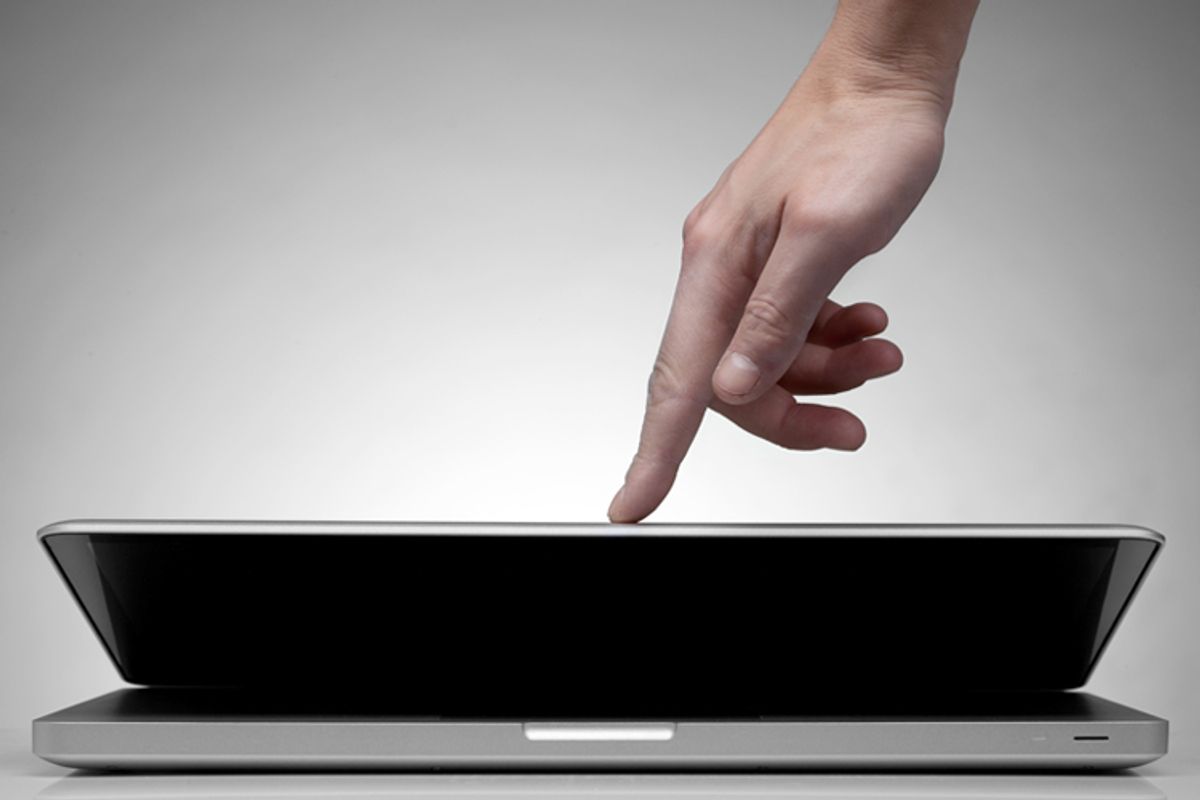After reading "Pushback: The Growth of Expressions of Resistance to Constant Online Connectivity," before I started writing this post, I checked Twitter to get a sense of the ongoing reaction to Apple's new iPad rollout. Then I looked at Facebook to see if anyone had commented on my post about my story earlier this morning about Ro Khanna and the emerging politics of Silicon Valley. Then I reviewed my email, after which I saw there were 50 new tweets in my Twitter feed. So I killed some more brain cells catching up again. And then there were more emails. And Facebook was blowing up about Miley Cyrus and the Roots. And then, wait -- what was I supposed to be doing?
Oh yeah, a post about pushback! Sorry, I got distracted. I guess I need to be more disciplined.
So what else is new? Veterans of the digital lifestyle have been grumbling about the oppression of online connectivity since at least as far back as when email first started taking over their lives. Heck, I remember my first bout of information anxiety came before the Internet -- that horrible day when I realized I was never going to catch up on all my New Yorkers.
Then again ... the growth of social media and the astonishing explosion of the mobile universe have taken us some place fundamentally different. When "Pushback" authors Ricardo Gomez, an assistant professor of information studies at the University of Washington, and Stacey Morrison, a recently graduated master's student from the same department, write that even some of the most "euphoric embracers of the opportunities of technological connectivity ... are now looking for ways to push back and resist," I see myself in the mirror. My job requires me to be as plugged in as possible, but even so, every day a new battle begins to carve out time to think and feel and be in the middle of so much distraction.
Gomez and Morrison review the available academic literature and survey the blog and mainstream media landscape to come up with some basic categories for why and how people are pushing back. Their search terms alone construct a distinctly millennial poetry:
Digital fasting, technology resistance, unplugging, disconnecting, information overload, information anxiety, slow media, connecting versus disconnecting, digital overload, digital suicide, Facebook suicide, slow spaces, social media diet, digital Sabbath, over-connectedness, techno-stress.
The most interesting takeaway from the paper is that the "motivations for pushback and resistance ... were deeply grounded in emotions ... Emotional dissatisfaction is the most frequently reported reason to push back and resist online connectivity ..."
Privacy, in contrast, was the least reported reason for pushback.
We are more disillusioned, then, than angry or paranoid. Still lonely, even as we're more connected than any humans have ever been. The more we check our devices, the more we realize we're not getting what we really need.
That said, it's time for me to publish this, Facebook it, tweet it, and then check my email to see what I missed while writing it. I hear the new iPad is thinner than ever!

Shares